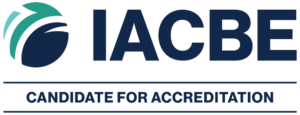We are thrilled to share that The Continents States University in St. Louis, MO, USA has become a candidate for accreditation by the IACBE. This big win shows our university’s strong focus on top-notch business education and ongoing improvement.
The IACBE is a top accreditor for business programs, known for its strict standards and commitment to quality in higher education. Getting the candidate status means The Continents States University has shown it can plan for student success. This is a key step towards full accreditation.

Being an IACBE candidate means our university is ready to boost our educational offerings. This will make sure our students get a learning experience that changes their lives. It also shows our commitment to meeting the highest industry standards and improving our programs.
At The Continents States University, we’re all about excellence and always getting better. This IACBE candidacy is a big deal for us. It proves our hard work and makes us a top choice for business education. We aim to equip our students with the skills they need to succeed worldwide.
Significance of IACBE Accreditation
The International Accreditation Council for Business Education (IACBE) is a top name in business education. It’s known for pushing for excellence. Getting IACBE accreditation means a program meets high standards and follows the best practices in business education.
Promoting Excellence in Business Education
Business programs with IACBE accreditation have to pass tough checks on their curriculum, teachers, and student results. This makes sure students get a top-notch education that prepares them for their careers. The IACBE’s accreditation process focuses on getting better, helping schools keep up their high quality and innovation in teaching business.
Recognizing Quality Standards and Best Practices
When schools get IACBE accreditation, they show they’re serious about top-notch business education. Employers really value this because they know graduates from these programs have what it takes to do well in business. The IACBE’s focus on quality and best practices helps students do great in their future careers.
IACBE Candidate for Accreditation: Advantages for Students
Choosing a university for business education can be tough. But picking one that’s an IACBE candidate can really pay off. These IACBE accredited programs offer a top-notch learning experience. They make sure students get a solid, thorough education.
Rigorous Curriculum and Faculty Standards
Being in an IACBE-candidate program means you’re set for a tough but rewarding course load. You’ll learn from top-notch faculty standards. These schools follow strict rules for their courses, teaching methods, and who teaches them. This means you get a great education that prepares you for the business world.
Employer Recognition and Career Readiness
Employers really notice degrees from IACBE-accredited institutions. They know these programs are tough and quality. So, if you graduate from one of these schools, you’re ready for your career. You’ll have the skills and experience needed to do well. This can lead to better job chances and help you move up in your career faster.
Diverse Range of Accredited Business Programs
At Continents States University, we offer a wide range of IACBE-accredited business programs. Our curriculum goes beyond basic business degrees. It includes specialized fields and concentrations for the modern business world.
Specialized Fields and Concentrations
We have more than just basic business programs. Students can explore areas like human resources, marketing, and event management. Other options include project management, organizational behavior, and business ethics. These programs help students gain deep knowledge and stand out in their careers.

Business Administration and Management
Our business programs give students a solid education. They learn key skills and knowledge for different business roles. Students learn how to make strategic decisions and lead effectively. This prepares them for success in global business settings.
Financing Education at an IACBE-Accredited University
Getting a degree from an IACBE-accredited university is a smart move for your future. Tuition costs vary, but these schools offer many financial aid options. This makes it easier for students to pay for their education.
One big plus of going to an IACBE-accredited school is the chance for scholarships and grants. Many schools give out scholarships for good grades and grants for those who need them. By looking into these options, you could lower your tuition costs and make school more affordable.
Aside from scholarships and grants, IACBE-accredited schools also offer loans, work-study programs, and other ways to pay for school. The school’s financial aid office can help you find the best way to cover your costs. This way, you can focus on your studies without worrying about money.
Choosing an IACBE-accredited education is a smart choice. These schools are known for their quality and excellence in business education. By looking into the financing options, you can achieve your dream of getting a top-notch business degree, even if you’re on a budget.


